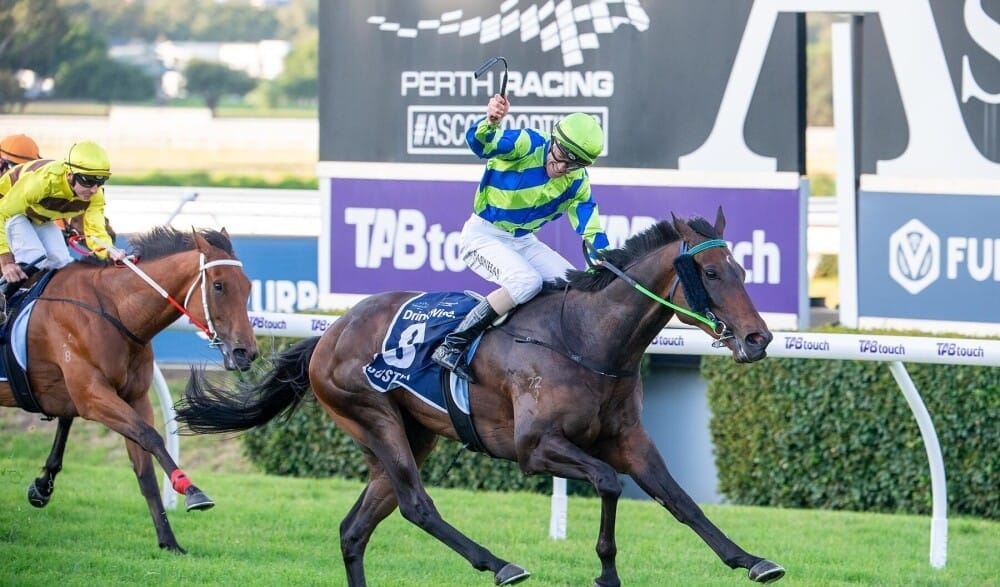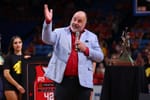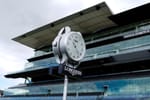Two years ago, as Western Australia was scrambling to its feet after COVID, questions were rightly being asked about the quality of the state’s racing. The pandemic demanded a rethink when it came to the future prosperity of Western Australian racing.
The response was a meeting of heads between Racing and Wagering Western Australia (RWWA) and Perth Racing, and the result a reimagining of the traditional Masters carnival concept.
The Pinnacles Series is now in its second year, boasting five feature races across five Saturday racedays, replacing the Masters’ three Group One racedays. Its prizemoney sits at $10.5 million, a $3.5 million recharge for winning horses.
It is an ambitious program that includes the Railway Stakes, Winterbottom Stakes and Northerly Stakes, as well as the $1.5 million ‘pop-up’ the Gold Rush. Last year, the Series returned the faith of its architects almost immediately when Godolphin flew Paulele in to win the Winterbottom, which he did.
James Oldring, CEO of Perth Racing, was in the job only months when The Pinnacles was announced last year. The Englishman, whose previous roles included tenures at the British Horseracing Authority and British Champions Series, could see that things were critical in Perth in early 2022.
“Perth Racing had gone through a pretty tough 18 months,” Oldring says. “When I started, there was no better time to do something differently, and one of the first conversations I had with RWWA was that we really needed to do something with our carnival. We needed to protect our Group One races.”
The pandemic had had serious effects on the Perth product, in particular on the average ratings of its Group One features.
“Rightly or wrongly, they were being perceived as slightly soft Group Ones, and we can’t have that. It just can’t be that way,” Oldring says. “So we sat down in a room with RWWA, which was entirely on the same page as us, and we had a meeting that lasted maybe an hour.
“We walked out celebrating an additional $3.5 million into our carnival, including the new $1.5 million Gold Rush.”
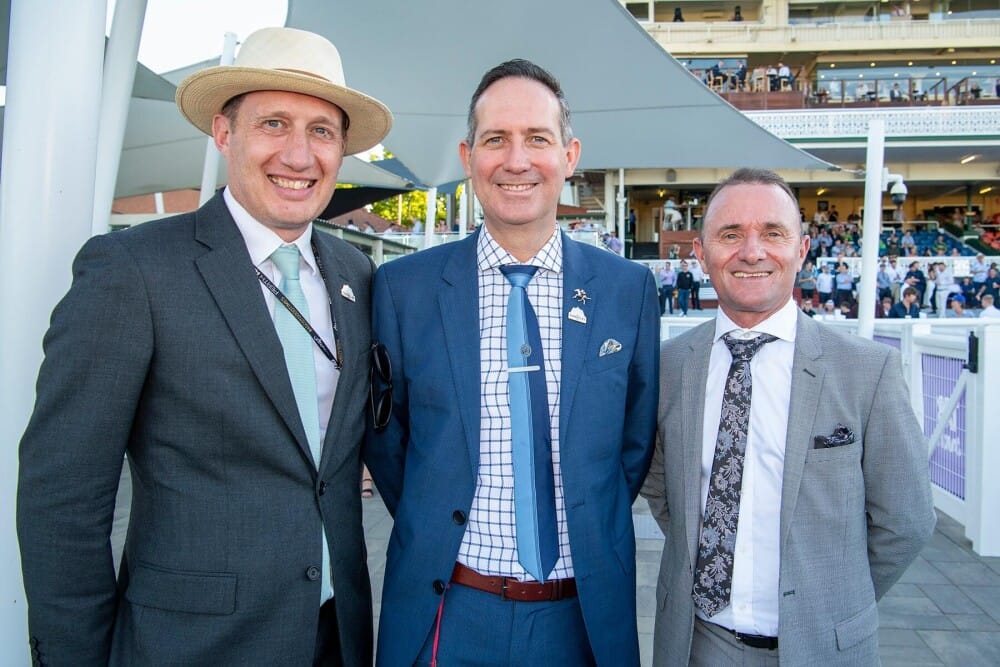
RWWA is one of the three Principal Racing Authorities (PRAs) in Australia managing the three codes of thoroughbreds, harness and greyhounds (Queensland and Tasmania are the other two). It means the rubber band is stretched tight at headquarters, but no one was in disagreement that The Pinnacles was in the best interests of everyone.
“That doesn’t happen in every jurisdiction, where you can just walk into a meeting and everybody nods and the money is on the table,” Oldring says, and it’s that level of cooperation in Western Australian racing that separates it from the squabbling so often seen between clubs and PRAs in the eastern states.
Ian Edwards, the CEO of RWWA, says there’s no point in the relationship being any other way.
“Our interests, for the vast majority of the time, should be aligned,” he says. “There are occasions when Perth Racing may have interests that deviate somewhat from the rest of the industry, and vice versa, but the vast majority of the time, the interests of both should be aligned.
“If both parties can see that, you generally tend to be working towards the same goals.”
"Our interests, for the vast majority of the time, should be aligned" - Ian Edwards
For the most part, things are simplified in Western Australia because of the state having only one metropolitan race club. That club, Perth Racing, manages Ascot Racecourse and Belmont Park.
By contrast, Racing Victoria is managing the metropolitan interests of three clubs and four city racecourses. In 2024, this responsibility will balloon when Cranbourne and Pakenham racecourses also fall under metropolitan management.
Western Australia’s isolation is also a factor in its modelling. For the most part it can, and routinely does, worry only about itself.
Edwards has been with RWWA for over six years, for the last three as its CEO, and he says the relationship with Perth Racing has improved dramatically in that time, and particularly since Oldring came aboard.
“I know from my history in racing that if a club doesn’t work collaboratively with its PRA, you’ve got no chance,” Oldring says. “I’ve been on the other side of the fence and I understand the role of RWWA, or any other PRA, is not just to hand money down to the clubs.
“The role of RWWA is to look after racing in Western Australia as a whole, not just look after Perth Racing.”
For RWWA, the needs of the rest of the state are just as vital in that its country scene is really the backbone of its thoroughbred industry. After all, the sole metropolitan club is one of 51 total clubs spread around Western Australia.
“The commercial centre of racing sits around those metro tracks, and provincial tracks like Pinjarra and Bunbury,” Edwards says. “But the relevance of racing is really more strongly felt in the country locations.
“Because of the vastness of Western Australia, you can drive for three hours between towns, but they’ll get 2500 people on-course for their biggest days of the year. Racing would struggle to survive without that, but, commercially, it needs the big racing and the big carnivals in the metro centre.
“It’s a balancing act and that’s the job of the PRA to get that right.”
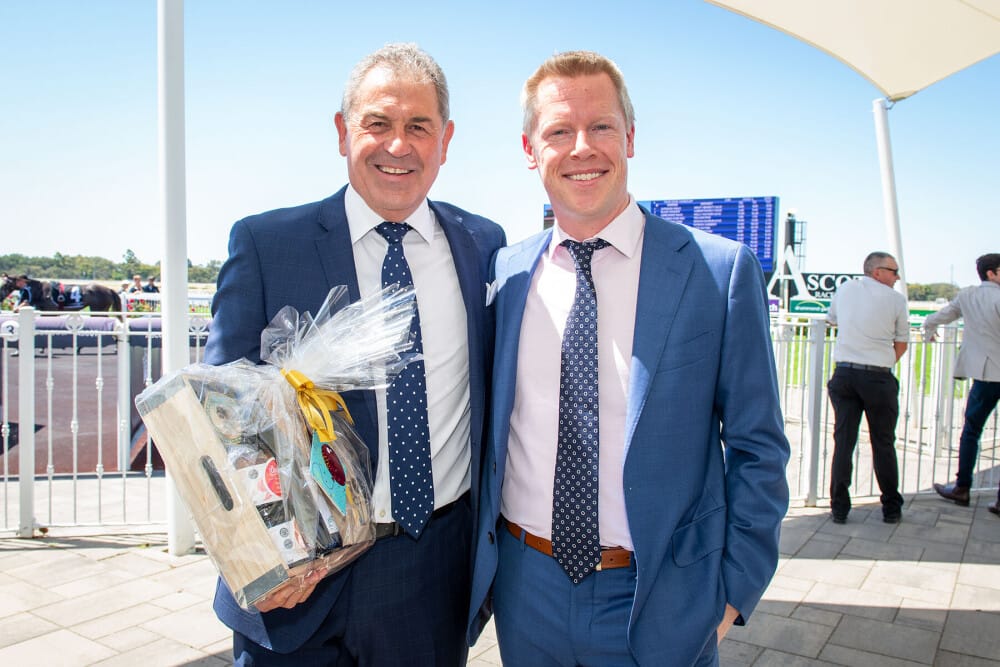
When The Pinnacles was announced last year, the Gold Rush was a new, rich feature. Like ‘The Pinnacles’, its name was a deliberate ploy to resonate with West Australians, as was ‘The Quokka’ when it was run to the tune of $4 million for the first time last May (in 2024 it will be worth $5 million).
“One of the things I recognised quickly in Perth is how proud Western Australians are to be Western Australian,” Oldring says. “I thought the north-south divide in England was significant, but it was nothing on the east-west divide in Australia.
“Very early, I recognised the importance of intrastate pride. Trying to create something that Perth is proud of was really critical.
“It was no accident when it came to rebranding ‘The Pinnacles’, along with the naming of the Gold Rush. It took me a little longer to get onboard The Quokka, I must admit.”
"Very early, I recognised the importance of intrastate pride. Trying to create something that Perth is proud of was really critical " - James Oldring
The Gold Rush was voted into name by readers of the West Australian newspaper with a clear remit that they had to come up with something that set the state apart, that would stir instant recognition. The Quokka achieved the same thing, albeit divisively.
“Being completely candid, as someone who was not a believer in the name to start with, I’ve recognised that ‘The Quokka’ has given that raceday a very real identity,” Oldring says. “It was a licence to be brave and to do things differently.”
Like the Winterbottom last year, the $4 million The Quokka in its inaugural year was a hit-and-run job from interstate. Overpass swooped in from Sydney and denied the local star, Amelia’s Jewel, a deserved victory.
However, it may have put The Quokka on the map because these rich features need the visitors to make them viable, like Obamburumai winning the Golden Eagle for Japan this year, or right back to Vintage Crop being the first international visitor to win the Melbourne Cup.
Oldring admits that much of the time, racing in Western Australia caters for the locals, which is a geographic necessity. Unlike Melbourne, Sydney and Brisbane, horses are routinely transferring in and out of Perth.
However, the success of the state’s major carnivals will rely on interstate interest, especially when it comes to The Pinnacles.
“The real focus of the last 18 months has been to talk about The Pinnacles as an Australian racing carnival, and not a Western Australian racing carnival,” Oldring says. “I think the nominations will start to reflect that. It’s like Chris Waller nominating 26 horses, and we all know that he won’t bring 26. But if he brought three that would be great.
“Gai and Adrian nominating six for the Railway; that’s a real testament to how hard we’re working to ensure this carnival is an Australian racing carnival.”
Oldring and Edwards have read the room well in Western Australia. They’re English expats, but they’re locals now and married to Western Australian women. When it comes to racing, Oldring says the sport is, essentially, the same the world over.
And, like the rest of the world, Perth has its wagering and media responsibilities, and this is topical right now as Perth Racing has agreed to pool its media rights for the upcoming round of negotiations in the state. Previously, it had carved out its own deal separate from the rest of Western Australia.
“We sat down with RWWA and agreed that it’s in everyone’s best interests that we go to the market united with one offering,” Oldring says. “And that was made easier because of that collaborative spirit, and the desire to do what’s right for racing in WA because what’s right for racing in WA will ultimately be good for everyone.”
"We sat down with RWWA and agreed that it’s in everyone’s best interests that we go to the market united with one (media) offering" - James Oldring
Edwards said that the media rights are fundamental to the local racing model, as they are for every state, and having as many eyeballs on the product is critical from a commercial and relevance perspective, as well as a wagering one.
“The media rights agreement is the most fundamental agreement we’ve got as a racing authority, and we are in a fortuitous position right now, by design and not by accident, that we’ve got this alignment with Perth Racing and the rest of the thoroughbred code.
“In some states, I know this isn’t the case, and certainly in WA in the past, the metro club has had its own media deal as opposed to the rest of the industry.
“But from the next round of negotiations, we in Western Australia will have an aligned position where the whole of the thoroughbred code is asking for the same thing from its deal.”
It would be easy to hold Western Australia up to the light and say this is how racing should operate nationally. In truth, Western Australia is the most isolated of the country’s racing jurisdictions and if it can’t get along with itself, it has a problem.
Perth racing hasn’t been without its operational issues.
In January 2023, the Perth Cup was suspended mid-race for the first time in its history after two horses went down in running whole on the opening day of the summer carnival, the rail had suddenly to be moved out three metres owing to a suspect patch of turf, and the last race was called off.
However, there is no club in Australia that operates without incident, and cooperation as an approach has resulted in a long history of celebrated administrators in Western Australia, such as Harry Bolton, Marjorie Charlson and Ernest Henry Lee-Steere.
Photos: Western Racepix

